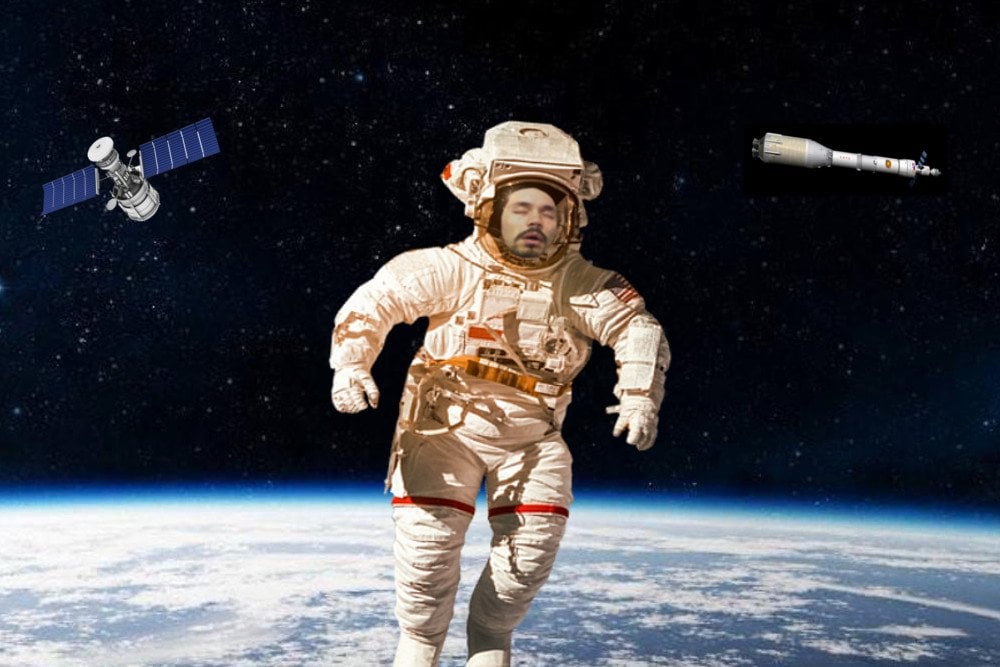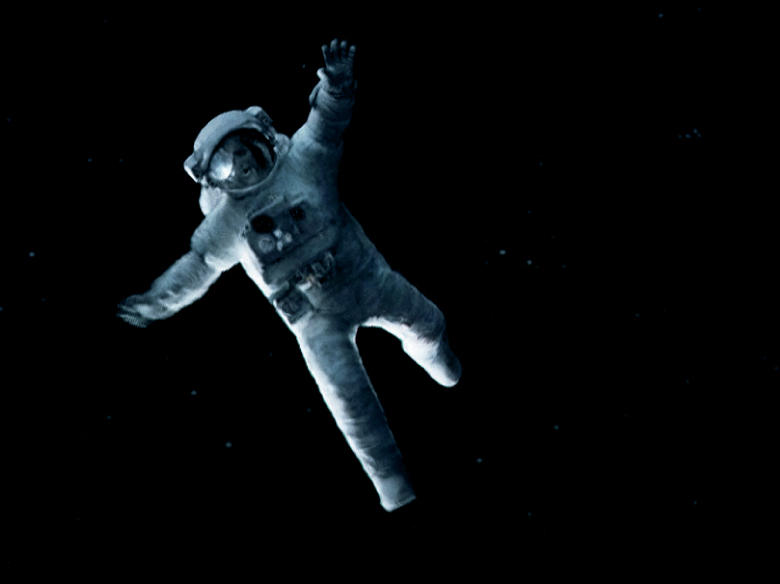Is it possible for a body to decompose in space? What science explains

Monday, October 25, 2021 | Chimniii Desk
Key Points
It is required to consider what it will be like to live in space — as well as what will happen if someone dies there. After death on Earth, the human body undergoes a series of stages of decomposition. On Earth, human remains decompose as part of a healthy ecosystem in which nutrients are recycled through living animals such as insects, bacteria, and even plants. However, I believe that remains would still appear to be human, as the complete disintegration process that occurs on Earth would not occur. In space, our bodies would be the "aliens."
Advertisement

AS SPACE Go FOR RECREATIONAL PURPOSES BECOMES A REALITY, a time may come when humans travel to other planets for vacations, or even to live. Blue Origin, a commercial space business, has already begun sending paying customers on suborbital trips. And Elon Musk's SpaceX intends to establish a base on Mars.
This requires us to consider what it will be like to live in space — as well as what will happen if someone dies there.
After death on Earth, the human body undergoes a series of stages of decomposition. These were initially detailed in 1247 in Song Ci's The Washing Away of Wrongs, effectively the first handbook of forensic science.
To begin, the blood ceases to flow and begins to pool due to gravity, a condition known as livor mortis. The body then cools to algor mortis, and the muscles become rigid as a result of an unregulated calcium buildup in the muscle fibres. This is the rigour mortis stage. Following that, enzymes and proteins accelerate chemical reactions and degrade cell walls, releasing their contents.
Simultaneously, the bacteria that live in our stomach emigrate and spread throughout the body. They putrefy the soft tissues, and the gases they release cause the body to expand. Rigor mortis is dissolved as muscles are damaged, pungent odours are released, and soft tissues are degraded.
Advertisement
These decomposition mechanisms are inherent, but external influences such as temperature, insect activity, burying or wrapping a body, and the presence of fire or water all have an effect on the decomposition process.
Mummification, the process through which the body is desiccated or dried out, occurs in dry environments that can be hot or cold.
Adipocere production can occur in moist conditions devoid of oxygen, where the water can promote the breakdown of lipids into a waxy substance via the process of hydrolysis. This waxy layer can operate as a protective and preserving barrier on top of the skin.
However, in the majority of cases, the soft tissues would eventually vanish, revealing the skeleton. These tough tissues are significantly more resilient and can last thousands of years.
Advertisement
Decomposition in Space:
Stopping Decomposition
So what about the premature death on the final frontier?
To be sure, the variable gravity experienced on other planets will undoubtedly affect the livor mortis stage, and the absence of gravity when floating in space will result in blood not pooling.
Rigor mortis would still occur inside a spacesuit because it is the result of the stoppage of biological functioning. Additionally, bacteria from the intestines would consume the soft tissues. However, because these bacteria require oxygen to function effectively, a lack of available air would greatly impede the process.
Microbes from the soil also contribute to decomposition, and hence any planetary environment that restricts microbial activity, such as excessive dryness, increases the likelihood of maintaining soft tissue.
Decomposition in settings so dissimilar to those found on Earth complicates external elements, such as the skeleton. When humans are alive, bone is a living material composed of both organic and inorganic materials arranged in a crystal structure.
Advertisement

Normally, the organic component decomposes, leaving just the inorganic leftovers, which are shown in museums. However, in extremely acidic soils, such as those found on other planets, the inorganic component can vanish, leaving only the soft tissues.
On Earth, human remains decompose as part of a healthy ecosystem in which nutrients are recycled through living animals such as insects, bacteria, and even plants. Environments on various planets will not have evolved in the same way to make optimum use of human bodies. Insects and scavenging animals are not found on any of our solar system's other worlds.
However, the dry desert-like conditions on Mars may cause the soft tissues to dehydrate, and windblown silt may erode and harm the skeleton in the same way that it does on Earth.
Temperature also has a significant role in breakdown. On the Moon, for example, temperatures can fluctuate between 120 and minus 170 degrees Celsius (248 and minus 248 degrees Fahrenheit) (minus 274 degrees Fahrenheit). As a result, bodies may exhibit symptoms of heat-induced alteration or freezing damage.
However, I believe that remains would still appear to be human, as the complete disintegration process that occurs on Earth would not occur. In space, our bodies would be the "aliens." Perhaps we would need to develop a new form of funerary practise that does not require the high energy requirements of cremation or the digging of graves in inhospitable terrain.
Advertisement